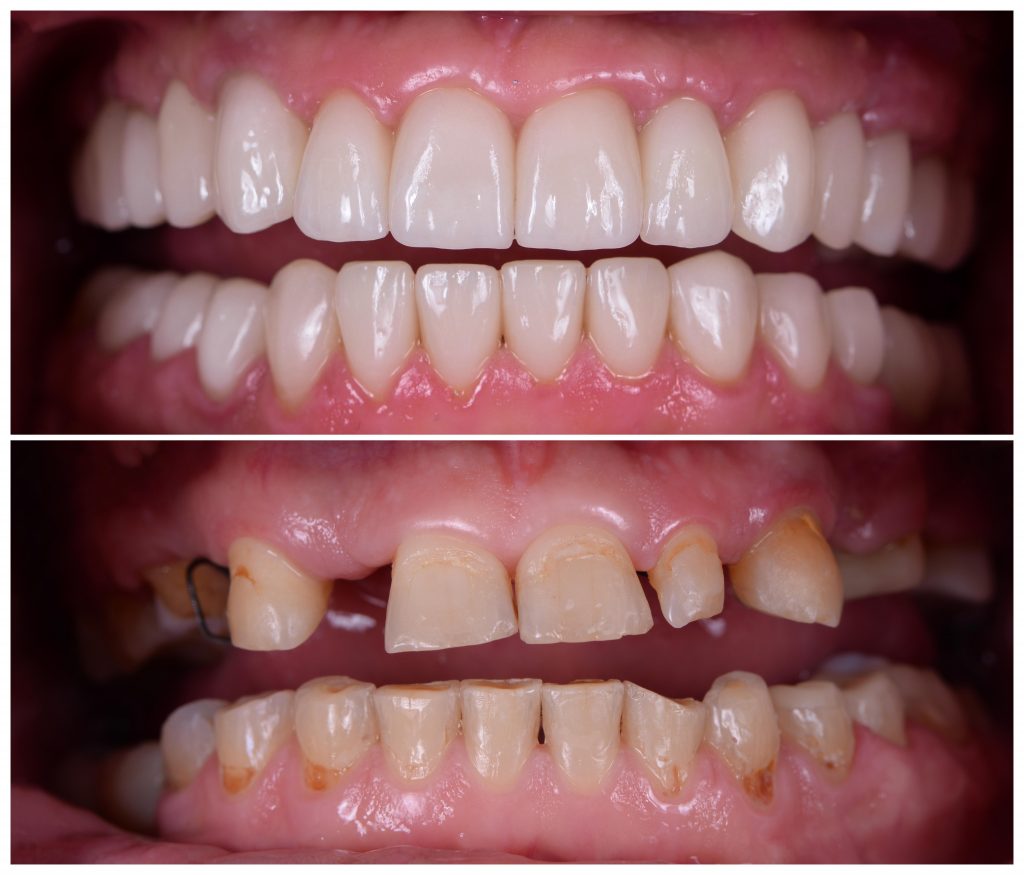Gentle Care Dentistry & Implants
General Dentist & Dental Implant Provider located in Sierra Vista, AZ
General Dentist & Dental Implant Provider located in Sierra Vista, AZ
When replacing missing teeth, patients may feel overwhelmed by their many restorative options. The most common teeth replacement options include dental implants, dentures, and dental bridges, which may be more cost-effective and less invasive. Each treatment has its pros and cons, and the best choice will depend on the patient’s needs, goals, and circumstances.
Our Sierra Vista, AZ, restorative dentist offers various tooth replacement options. Contact Gentle Care Dentistry and Implants today by calling (520) 458-9460 to learn more about your tooth replacement options.
While dental implants are widely considered the gold standard for tooth replacement, they are not always the best or most affordable option for every patient. Fortunately, there are several alternatives that can effectively restore missing teeth, including dentures and dental bridges. Each option comes with its own benefits and considerations, so it’s essential to understand them before making a decision.
Tooth loss can be a distressing experience, affecting not only our oral health but also our self-confidence and overall quality of life. Understanding the causes and consequences of tooth loss is essential in making informed decisions about replacement options.

Tooth loss can occur due to various reasons, including:
Replacing missing teeth is crucial for maintaining good oral health, preventing further complications, and restoring our natural smile. Missing teeth can lead to:
Dentures are one of the oldest and most common solutions for replacing missing teeth. Individuals who wear dentures can expect an adjustment period, during which they may experience changes in speech and eating habits, but regular consultations with dental professionals can help ensure proper fit and function. They consist of a set of artificial teeth mounted on a removable acrylic or metal base. Dentures are an excellent choice for patients who are missing a significant portion or all of their teeth and want an affordable, non-invasive option for tooth replacement.
Full dentures are designed to replace all the teeth in the upper or lower arch. Immediate dentures are an option for patients who need dentures immediately after tooth extraction. They are customized to fit over the gums, providing a complete smile and restoring chewing and speaking abilities.
Partial dentures are used when a patient is missing some teeth but still has healthy teeth remaining. These dentures fill the gaps in the smile by attaching to the remaining natural teeth with clasps or precision attachments.
For patients who want a more stable and secure fit, implant-supported dentures are a great option. Dental implant surgery involves placing the implants that support the dentures, ensuring they are securely anchored. These dentures are anchored in place with dental implants, providing extra security and preventing the dentures from slipping or moving while eating or speaking.
Dentures come with both benefits and drawbacks:
While dentures are an effective and affordable option, they may not offer the same level of comfort, stability, or longevity as dental implants. To ensure the gums are healthy enough to support dentures, gum disease treatments or supplemental procedures may be necessary.
A dental bridge is another viable solution for replacing missing teeth. A bridge consists of one or more artificial teeth, known as pontics, which are anchored to the adjacent healthy teeth on either side of the gap. Bridges are typically made of durable materials such as porcelain or ceramic to blend naturally with your smile.
While it’s technically possible to live without replacing a missing tooth or teeth, doing nothing is not recommended. When you replace missing teeth, you address several potential complications, including:
For these reasons, it’s essential to consider tooth replacement options. Dental implants are often the best choice, but bridges and dentures can be effective alternatives, depending on your individual needs and preferences.
Proper care and maintenance are essential for the longevity and success of dental alternatives, including dentures and bridges.
To ensure the optimal performance and longevity of dentures and bridges, follow these care tips:
By understanding the causes and consequences of tooth loss and maintaining proper care and maintenance of dental alternatives, we can restore our natural smile, improve our oral health, and enhance our overall quality of life.
Yes, it’s possible to get dentures if you have gum disease, but it’s essential to address the gum disease first. Treatment options may include deep cleanings, gum disease therapies, or even bone grafting to restore oral health and ensure a better fit for dentures.
Dental bridges typically last between 5 to 15 years, depending on factors like oral hygiene, the type of bridge, and the materials used. Regular dental checkups and proper care can extend the life of your bridge.
Yes, implant-supported dentures are a great alternative to traditional removable dentures. They offer more stability and comfort, as they are anchored to dental implants rather than relying on suction or adhesives.
No, a dental bridge should not affect your ability to speak. It may take a short period of adjustment, but once you’re used to it, you should be able to speak clearly and comfortably.
While dental implants are the gold standard for replacing teeth, we know they may not be right for everyone. Schedule a consultation with our Sierra Vista, AZ, dentist, Dr. Kent Hales, today to discuss your tooth replacement options. Call (520) 458-9460 to contact our dental implant office.
